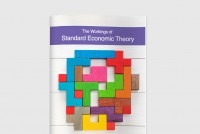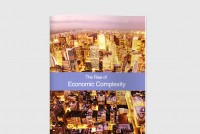Service Dematerialization
At the heart of the challenge of sustainable development is the challenge of decoupling economic growth from an increased demand for more resources; doing this is called decoupling. Decoupling refers to the ability of an economy to grow without corresponding increases in environmental pressure due to added resource consumption. Decoupling currently represents one of the core requirements to sustained economic development as diminishing resources, on the one hand, meets growing demand for them on the other.
Thomson Reuters estimates that by 2030, the global middle class will more than double in size, from just over 2 billion today to 4.9 billion. This is a very rapid increase in the global consuming class in response to which traditional methods of simply trying to reduce impact will not be sufficed. Delivering a sufficient standard of living for the billions of extra people coming into the global economy over the coming decades will require a decoupling of economic growth from resource consumption; being able to deliver the required functionality while using fewer resources to do it.
Decoupling requires that we look at both production and consumption patterns. Traditionally we have focused very much on the production side of the equation – looking at waste minimization, cleaner technologies, recycling and reducing impacts – but attempts to find sustainable solutions in this way have had only incremental improvements, not the wholesale transformation needed. Achieving truly sustainable solutions as the global economy rapidly expands will require not incremental improvements on existing methods, but a transformation in the whole paradigm through which goods are produced and consumed. A shift in analysis away from a traditional focus on the production of tangible goods and a move towards looking at both production and consumption in terms of the overall function that its delivered.
This process of switching from a focus on material product to delivered functionality is called servicization. A paradigm that shifts our economic model from the consumption of products to the access of services. A sustainable economy would fundamentally be an economy built around services instead of products thus enabling it to decouple economic growth from resource consumption.
Publish Date: 5-1-2017
Length: 20 pages
Type: Environment Insight










